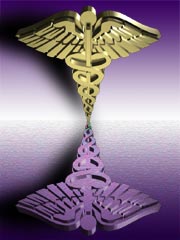|
PHOENIX
CARE MANAGEMENT, INC. |
 Utilization Management Program
Overview
Utilization Management Program
Overview
The Phoenix Care Management Utilization Management Program is a cost containment program developed to assess the medical necessity and appropriateness of proposed treatment plans while maintaining quality of care. This program is provided to Third Party Administrators (TPA), employers, and insurers of group health.
All medical reviews are performed by licensed nurses with nursing experience in various clinical specialties and utilization review. Physicians that serve as advisors are licensed and board certified with experience both as practicing physicians and in medical management.
Pre-admission certifications, concurrent and retrospective reviews are conducted for a wide range of outpatient services and hospitalizations, including behavioral health. Discharge planning and catastrophic case management intervention may also be utilized. Through this program, PCM seeks to impact decision-making prior to care being rendered and before expenses are incurred.
PCM follows all URAC standards, as well as applicable specific state and federal regulations in place at the time of the utilization management request or notification.
The patient, facility, or attending physician/provider calls PCM staff to provide information on conditions that may require admission to or a continued stay in a health care facility. The reviewer applies established criteria to the patient’s specific circumstances and proposed treatment plan. An update of the patient’s condition is obtained from the facility’s utilization review department or the provider’s office.
PCM recognizes some individuals may have special circumstances such as a disability, a secondary or acute condition, or a life threatening illness that requires flexibility in the application of the screening criteria.
Pre-Certification/Pre-Admission:Requirements for pre-authorization of inpatient and outpatient procedures, hospitalizations and treatment plans are dependent upon client contract. Pre-screening is often conducted by the payor, especially if there is a question regarding benefit interpretation.
For pre-authorizations, PCM staff makes recommendations regarding medical necessity within 1–2 business days of receipt of the necessary information on a proposed admission or service requiring review. Adverse recommendations are communicated by telephone within one business day and in writing within one business day, and include appeal information.
Concurrent review:The frequency of concurrent review for extension of the initial recommendation will vary, based on the patient’s condition, the complexity of the case, and practice guidelines. Once all necessary information to complete the review is received, a recommendation is made within 1–2 business days or as required by state law.
A concurrent review recommendation to certify an extended stay or additional services is communicated to the attending physician or other provider and facility rendering service by telephone, fax or in writing within 1-2 business days of the recommendation, according to state regulatory requirements. Adverse recommendations are communicated within one business day.
Retrospective Review:Retrospective reviews are only available upon request by the client.
Discharge Planning Review/Re-Admission Review:
Regardless of what level (outpatient, inpatient, home care, chiropractic, physical therapy, etc.) of services is being offered, discharge planning (potentially done on all cases) and re-admission cases follow the same general principles, policies, and procedures that pertain to all utilization management cases.<>
Behavioral Health Review (Mental Health/Substance Abuse Review):
The provider or patient/family calls to give information about the circumstances and conditions that may require admission to a health care facility. The reviewer applies criteria to the patient’s proposed treatment plan.
If the information that is provided does not seem to demonstrate medical necessity according to the guidelines for the proposed admission/outpatient visits, the reviewer will refer the case to a physician advisor for review. In the case of an adverse recommendation, the advisor describes appeal rights to the provider. Review results are used to administer benefits according to the specific requirements of the client’s health or other benefit plan.
The patient, provider and facility have access to an appeals process with a different advisor. The provider has the opportunity to provide additional documentation and request a reconsideration of the initial advisor’s recommendation.
Emergency Admissions:Notification is required within 24 hours of admission or the next business day, depending upon the specific client contract. Emergency services rendered to a patient do not require pre-authorization.
Non-emergency Admissions: In the absence of any contractual agreement between the client and payor to the contrary, the enrollee/patient is responsible for notifying PCM's staff in a timely manner and obtaining certification for health care services. Notification is generally required 3-7 days prior to admission or Outpatient encounter depending on the specific client contract.
Confidentiality:
PCM considers the protection of employee/patient information to be of the utmost importance. All PCM personnel are subject to a confidentiality policy that requires that they maintain the confidentiality of information relating to persons covered by any of PCM's products. Personnel are prohibited from using any such confidential information except as appropriate for the business of PCM. This policy meets all HIPAA requirements. All personnel are also required to attend a class on HIPAA standards and to sign an acknowledgment of their understanding and compliance with these requirements.
PCM also follows all URAC standards regarding confidentiality, and all applicable state laws regarding the same.
| Utilization Management Program-overview | Disease Management Program | Medical Claims Analysis |
© 2004 PHOENIX CARE MANAGEMENT, INC. (PCM)
